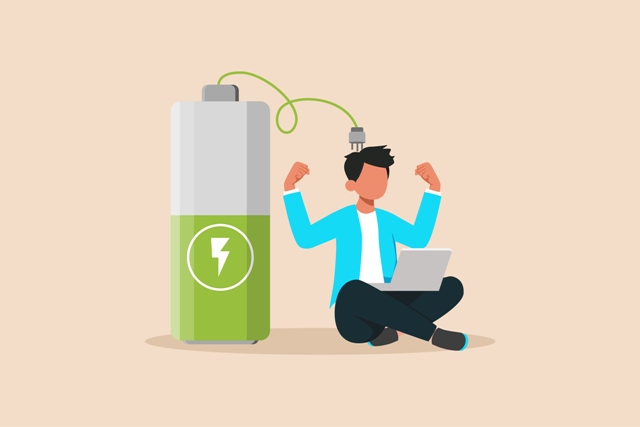In college life students have classes, assignments, extracurricular activities, part-time jobs and social obligations. In the midst of this hectic schedule, it’s crucial for students to recharge their energy reserves. Just like a Smartphone battery needs to be recharged to function optimally, students too need to replenish their physical, mental and emotional energy to thrive academically.
One of the most important factors in restoring energy is getting an adequate amount of sleep. Students often fall into the trap of sacrificing sleep to meet deadlines or socialise, but this can have detrimental effects on their health and academic performance. Aim for 7-9 hours of quality sleep each night by establishing a consistent sleep schedule, creating a relaxing bedtime routine, and minimising distractions in the bedroom.
Regular physical activity is not only beneficial for physical health but also for boosting energy levels and reducing stress. Incorporate exercise into your daily routine, whether it’s going for a jog, attending a fitness class or simply taking a brisk walk around campus.
Proper nutrition is essential for maintaining energy levels and supporting overall health. Avoid relying on caffeine and sugary snacks to get through the day, as these can lead to energy crashes and interfere with sleep. Instead, opt for a balanced diet rich in fruits, vegetables, whole grains, lean proteins, and healthy fats.
While it’s important to stay focused and productive, it’s equally important to give yourself permission to take breaks and recharge throughout the day. Schedule short breaks between study sessions or classes to rest your mind, stretch your body and engage in activities you enjoy. Whether it’s chatting with friends, listening to music or spending time outdoors, taking regular breaks can prevent burnout and improve overall productivity.



